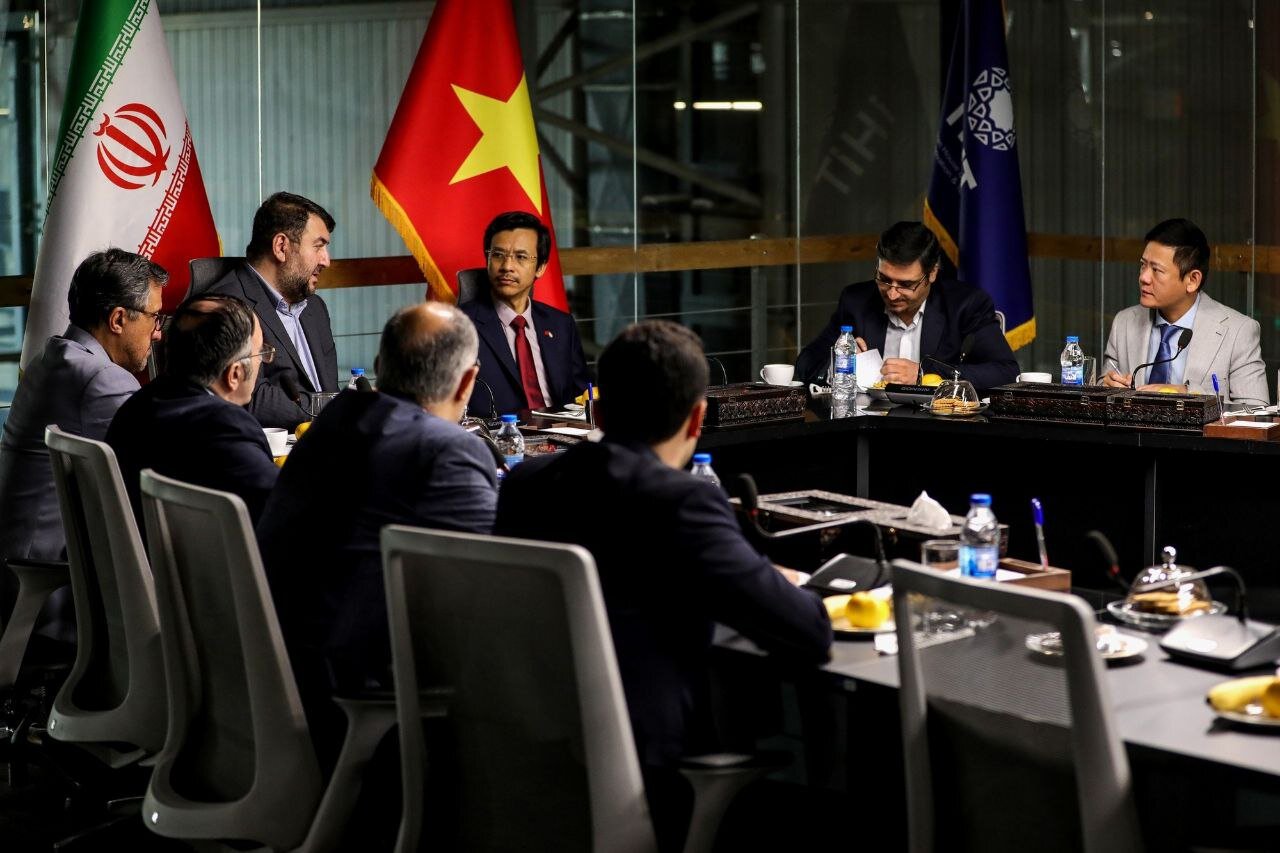Tehran, Hanoi explore avenues to foster sci-tech ties

TEHRAN – The head of the Organization for the Development of International Cooperation in Science and Technology, Hossein Roozbeh, and the Vietnamese Ambassador to Iran, Nguyen Luong Ngoc, have discussed ways to expand scientific and technological collaborations between the two countries.
On Wednesday, Ngoc paid a visit to the Tehran branch of Iran House of Innovation and Technology (iHiT) to become more familiar with Iran’s achievements and products in the technology sector, particularly nanotechnology, IRNA reported.
During the Wednesday meeting, the Vietnamese official lauded Iran’s high scientific potential in different fields like pharmaceuticals, construction, and modern technologies, and proposed establishing iHiT in Hanoi. This will expedite scientific and international interactions between the two countries, he added.
Referring to the capabilities and accomplishments of Vietnam in the agricultural, fishery, and aquaculture sectors, Ngoc stated, “We have had a successful experience in extra-terrestrial cultivation in Cuba, multiplying the volume of agricultural production and product exports. The two countries can collaborate to implement the same model in Iran, particularly in the north of the country.”
For his part, Roozbeh elaborated on Iran’s technological capacities in agriculture, fishery, medicine, medication, construction, nanotechnology, and artificial intelligence (AI).
The current administration places a priority on fostering scientific collaborations with neighboring and friendly countries, Roozbeh said.
The official went on to voice Iran’s readiness to boost scientific, technological, and research cooperation, as well as share expertise with Vietnam.
Iran ranks 72 in technology, innovation
According to the United Nations Conference on Trade and Development (UNCTAD) Technology and Innovation Report 2025, Iran is ranked among upper middle-income countries, ranking 72nd among 166 countries.
The country’s ranking has improved by one position compared to 2022.
UNCTAD has categorized 17 types of technologies as frontier technologies, including artificial intelligence, Internet of Things, big data, 5G, 3D printing, robotics, drone technology, solar photovoltaic, concentrated solar power, biofuels, biogas and biomass, wind energy, green hydrogen, electric vehicles, nanotechnology, and gene editing.
The Technology and Innovation Report 2025: Inclusive Artificial Intelligence for Development surveys the complex artificial intelligence landscape, aiming to help decision-makers design science, technology, and innovation policies that foster inclusive technological progress.
The Report 2025 calls for AI that puts people first and is shaped through global cooperation in which all countries have a say. The Report identifies three key leverage points – infrastructure, data, and skills – offering a broad socioeconomic perspective on AI while analyzing requirements and policies to promote sustainable industrialization and innovation.
The sub-indices of readiness for frontier technologies in 2025 show that Iran’s best ranking is in the research and development sub-index (35th in the world).
In the finance sub-index, the country’s ranking has improved from 62 in 2022 to 56 in 2025. In other sub-indexes like skills and the establishment of information and communication technology, its ranking has lowered from 74 and 78 in 2022 to 82 and 94 in 2025, respectively.
MT/MG
Leave a Comment